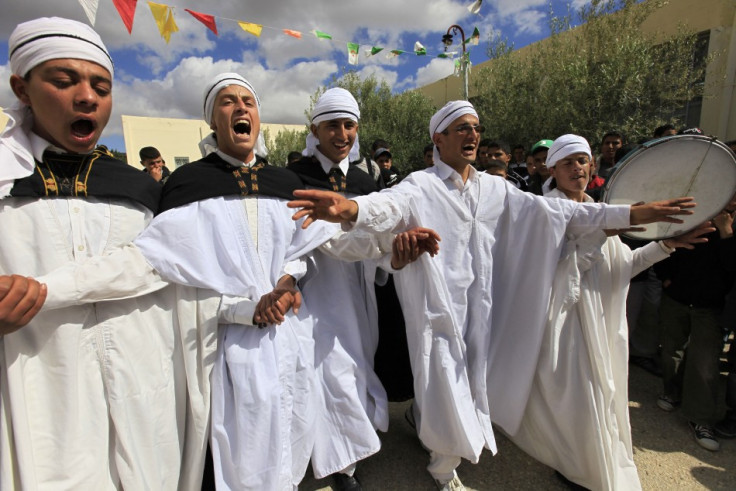Berbers, Other Groups Stake Their Claims on the 'New Libya'

While the situation in Libya is still far from stable as the National Transitional Council struggles to mop up Gaddafi holdouts and set up a functioning government, new voices are emerging.
The Berbers, for example, have been fighting alongside the NTC and now want to claim more political space in the "new Libya."
While Muammar Gaddafi might have mimicked the Berber lifestyle by living in a tent, even when traveling abroad, under his regime the Berbers were oppressed.
With the revolution's victory, the Amazighs ("free men"), as they call themselves, are now are rallying to seek recognition of their language and culture.
Under Gaddafi, the "free men" were banned from publicly speaking, writing or printing anything in their own Tamazight language. This week they organised the "First Libyan Amazigh Forum" under the slogan, "Officialise the Amazigh language and support national unity."
The Berbers make up some 10 per cent of Libya's 6 million people, and while they insist they do not plan an independent Amazigh political party or have separatist tendencies, they certainly expect the NTC to recompense them for fighting against Gaddafi.
"We do not believe in political parties founded on different (identities) from Amazighs, but want to tell the transitional government and the government that follows that the Amazighs are an integral part of political life," said Fathi Abu Zakhar, chairman of the preparatory committee.
"We want Tamazight inscribed as a right in the constitution," he told participants at the conference.
The Berbers were present in Libya before the seventh-century Arab conquest and helped defend the country against the Italian occupation. They are concentrated around the Nefusa Mountains in the northwest, in the Zuwarah region 120 kilometres (75 miles) west of Tripoli and in southwestern Ghadamis province on the frontier with Algeria.
The Amazigh forum also came as tensions between fighters from the Nefusa Mountains and those from Misrata flared, with both camps insisting they were the first to enter Tripoli and expect to be rewarded for their actions with adequate representation in the new political system.
The Amazighs are unlikely to be the only ethnic group making demands as Libya is divided along tribal lines and it will be difficult for the NTC to set up an inclusive government that responds to the different groups' expectations.
After saying for months that it had prepared for ousting Gaddafi, the NTC is now struggling to come up with a Cabinet and is now said to be postponing forming a temporary administration until the whole country has been "liberated."
First set up in Benghazi, the largest city of the Cyrenaica region which has for long been in competition with the Tripolitania region, the NTC is still struggling to win over the rest of the country.
The NTC also aims to set up elections within 20 months of the liberation, which might now sound like a short deadline.
With Libya awash with weapons, Gaddafi still on the run and different factions of the population, including Islamists, demanding more political space, NTC officials must be finding the transitional phase rougher than they anticipated.
© Copyright IBTimes 2025. All rights reserved.



















